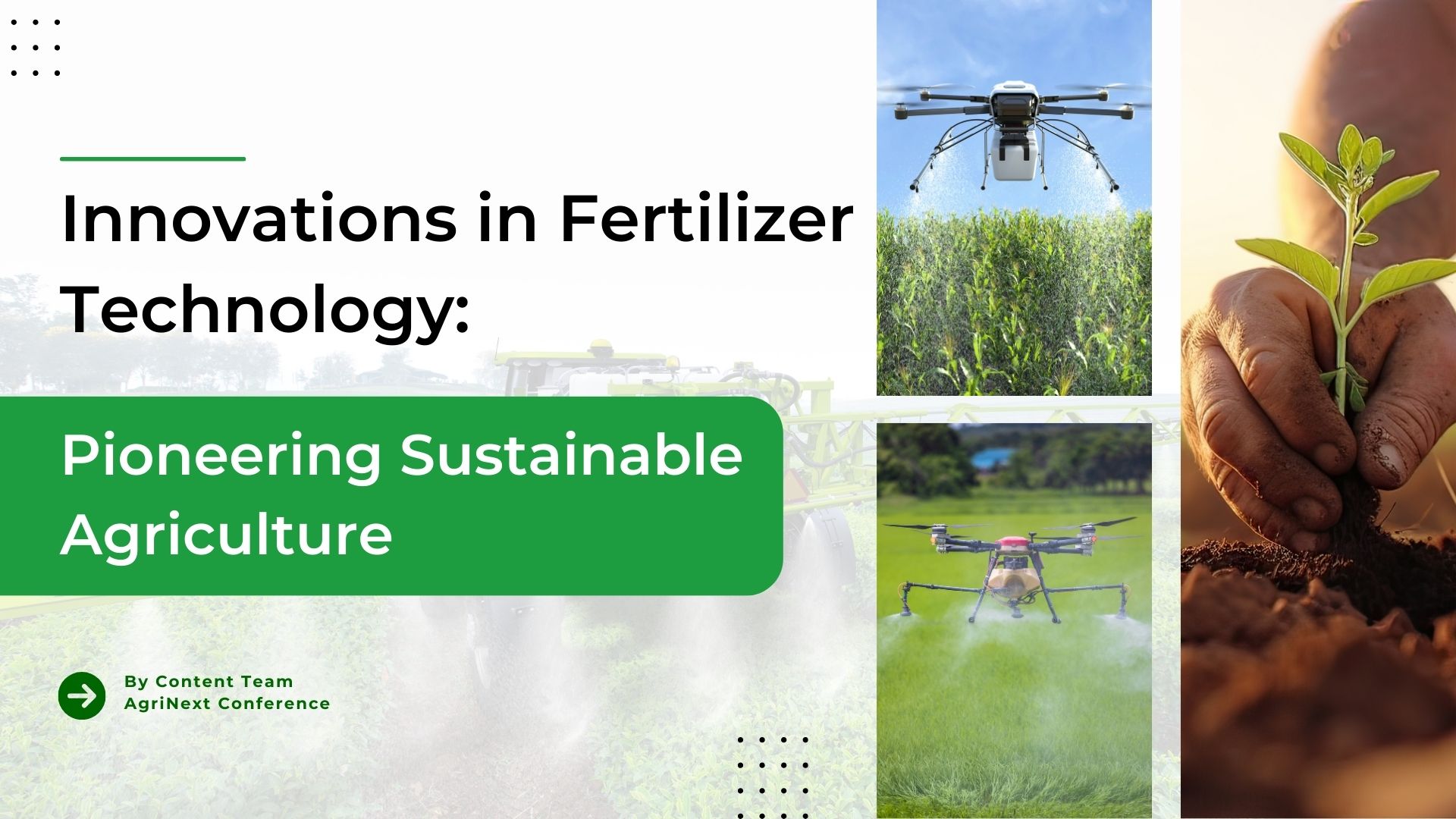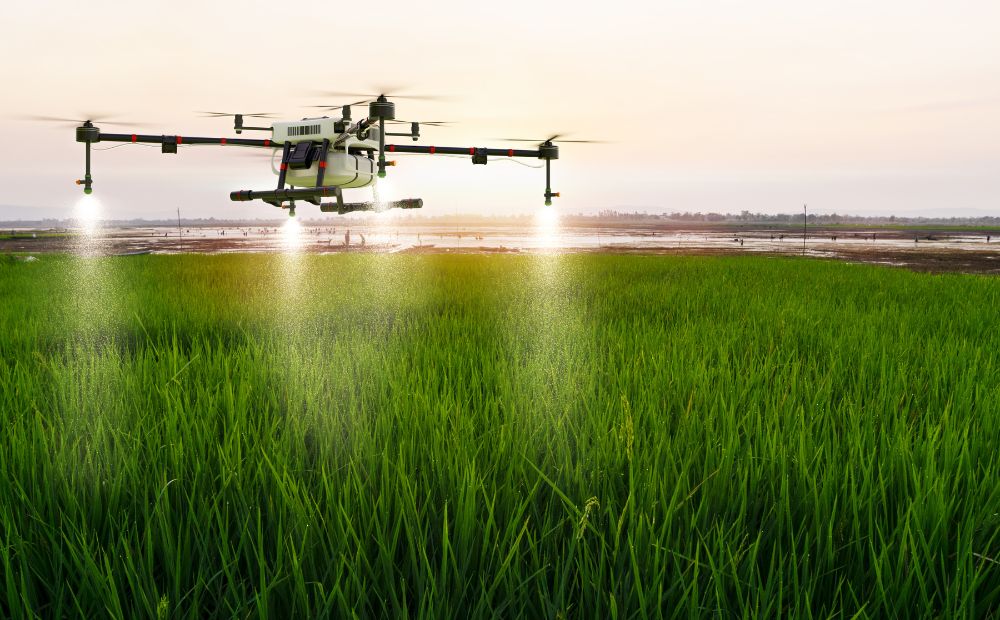
Sustainable agriculture aims to meet society’s food and textile needs in the present without compromising the ability of future generations to meet their own needs. A critical component of sustainable agriculture is the use of fertilizers that enhance crop production while minimizing environmental impact. Recent innovations in fertilizer technology are paving the way for more sustainable practices in agriculture. This blog explores some of the key advancements in this field.
Table of Contents
Controlled-Release Fertilizers (CRFs)
Overview
Controlled-release fertilizers (CRFs) are designed to release nutrients gradually into the soil, adjusting nutrient availability with crop demand. This reduces nutrient losses due to leaching and volatilization, thus enhancing nutrient use efficiency.
Benefits
Reduced Environmental Impact: Lower nutrient runoff and leaching reduce water pollution and greenhouse gas emissions.
Improved Crop Yield: Steady nutrient supply can lead to more consistent and higher crop yields.
Cost-Effective: Reduced need for multiple fertilizer applications can lower labour and application costs.
Innovations
Recent innovations include the use of biodegradable polymers for coating fertilizers, which decompose naturally and eliminate the issue of residue buildup in the soil.

Innovations in Fertilizer Technology
Understand Fertilizer Technology
Fertilizer technology is transforming modern agriculture by enhancing nutrient efficiency and sustainability. Recent innovations in fertilizer technology, such as controlled-release and nano-fertilizers, provide targeted nutrient delivery, reducing environmental impact. Advancements in biofertilizers and microbial inoculants are also part of this evolving fertilizer technology, promoting healthier soils and higher crop yields. Embracing these technologies is crucial for sustainable and productive farming.
Nano-Fertilizers
Overview
Nano-fertilizers involve the use of nanotechnology to deliver nutrients more effectively to plants. These fertilizers have particles in the nanometer scale, which can enhance the uptake and utilization of nutrients by plants.
Benefits
Enhanced Efficiency: Higher surface area and reactivity improve nutrient absorption and reduce waste.
Targeted Delivery: Precision delivery systems can ensure nutrients reach specific plant parts or roots, reducing overall usage.
Environmental Safety: Potential to lower the amount of fertilizers needed, reducing the environmental footprint.
Innovations
Developments in nano-fertilizers include the encapsulation of nutrients in nanoparticles, allowing for slow and controlled release, and the use of nano-sensors to monitor and adjust nutrient release based on real-time plant needs.
Biofertilizers
Overview
Biofertilizers are natural fertilizers that use microorganisms to enhance the availability of nutrients to plants. They include nitrogen-fixing bacteria, phosphate-solubilizing bacteria, and mycorrhizal fungi.
Benefits
Soil Health Improvement: Promotes soil microbial activity and organic matter decomposition.
Sustainable and Renewable: Derived from natural sources, reducing dependence on chemical fertilizers.
Environmental Protection: Lower risk of soil and water pollution compared to chemical fertilizers.
Innovations
Recent advancements include the development of biofertilizer formulations with higher shelf life and stability, and the use of genetic engineering to enhance the efficiency of microorganisms.
Organic Fertilizers
Overview
Organic fertilizers are derived from plant or animal matter and include compost, manure, and bone meal. They are crucial for maintaining soil health and fertility over the long term.
Benefits
Improved Soil Structure: Enhances soil aeration and water retention capabilities.
Nutrient-Rich: Provides a balanced supply of macro and micronutrients.
Eco-Friendly: Minimizes the chemical load on the environment.
Innovations
Innovations in this area include the development of advanced composting techniques that accelerate the decomposition process and the formulation of fortified organic fertilizers that combine the benefits of organic and inorganic sources.
Microbial Inoculants
Overview
Microbial inoculants are preparations of beneficial microorganisms that are introduced to the soil or plants to promote growth and health. These include bacteria and fungi that can suppress plant diseases, improve nutrient uptake, and stimulate plant growth.
Benefits
Disease Suppression: Helps in controlling soil-borne diseases naturally.
Enhanced Nutrient Uptake: Improves the efficiency of nutrient use by plants.
Sustainable: Reduces the need for chemical pesticides and fertilizers.
Innovations
Advancements include the use of next-generation sequencing and metagenomics to identify and cultivate more effective microbial strains, and the development of delivery systems that enhance the survival and colonization of these microorganisms in the soil.
Microbial Inoculants as Biofertilizers
Microbial inoculants, often referred to as biofertilizers, are beneficial microorganisms like bacteria, fungi, and other microbes added to soil or plant environments to enhance nutrient uptake, promote growth, and suppress pathogens.
They can improve soil health, increase crop yields, and reduce the need for chemical fertilizers and pesticides. They can fix atmospheric nitrogen, solubilize phosphorus, and produce growth-promoting substances like hormones.
By fostering symbiotic relationships with plants, they improve soil fertility and plant health, reducing the need for chemical fertilizers while promoting sustainable agriculture practices. Microbial inoculants are environmentally friendly and deliver plant nutrients to plants in a more sustainable manner.
Examples include:
- Nitrogen-fixing bacteria like Rhizobium
- Phosphate-solubilizing bacteria like Bacillus species.
- Filamentous fungi are a diverse group of fungi characterized by their thread-like structures called hyphae.
These fungi play crucial roles in various ecosystems, including decomposition, nutrient cycling, and symbiotic relationships with plants.
Some filamentous fungi form mycorrhizal associations with plant roots, enhancing nutrient uptake, while others are important decomposers, breaking down organic matter in soil.
Additionally, filamentous fungi include several economically significant species used in food production (such as moulds used in cheese and fermentation processes) and biotechnology (such as species used in pharmaceutical production).
Challenges to the Conventional Application of Microbial Inoculants in Agriculture
Despite the advantages of microbial inoculants over agrochemicals, their widespread use is limited by several challenges.
In research, microbial inoculants have been successfully applied as liquids or dry formulations, but these methods are impractical on a large scale due to the large quantities required for effective results (Callaghan, 2016).
Plant Growth-Promoting Rhizobacteria (PGPR) are highly selective, affecting only targeted organisms, unlike broad-spectrum chemical inputs.This selectivity can cause inconsistent quality and effectiveness in diverse field conditions (Timmusk et al., 2017).
Another challenge is the variability in shelf-life. Maintaining the viability of microbes in inoculant formulations is difficult, as survival rates vary with treatment method and storage temperature (Callaghan, 2016).
Long-term survival at normal storage conditions is essential for mainstream use, but the cost of maintaining both seeds and microbes during storage is high.
Additionally, using some microbial inoculants as biocontrol agents can be risky. Some agents have been reported to be toxic and pathogenic to non-target organisms (Cuddeford and Kabaluk, 2010).
Emerging Enterprises in Eco-Friendly Agriculture
Here are a few Indian startups that are contributing to the growth of sustainable agriculture in India:
Green India Organic
Green India Organic provides organic farming solutions and products, including microbial inoculants for soil health and plant growth. Registered in 2022, Green India Organics has gained immense expertise in supplying & trading bio-organic fertilizer and agriculture seeds.
Founder & CEO: Mr. Hardik Ravat
Krishi Rasayan Export Pvt. Ltd.
Krishi Rasayan offers organic farming inputs, including microbial inoculants and biofertilizers. Their motto, “Farmer’s prosperity is our priority,” reflects their commitment to the well-being and progress of the farming community.
Chairman & Managing Director: Mr. Atul Churiwal
Organic Mandya
Organic Mandya promotes organic farming practices and offers organic inputs, including microbial inoculants for farmers. Their mission is to help provide sustainable livelihoods to farmers, offer 100% honest organic food to people, and make Mandya district chemical-free.
Founder & CEO: Mr. Madhu Chandan
AgroStar (Biofertilizer)
AgroStar is a digital platform providing agronomy solutions and products to farmers, including organic farming inputs such as biofertilizers and organic pesticides.
Co-founder & CEO: Mr. Shardul Sheth
Suminter
Suminter India Organics is a leading exporter of organic products, working closely with farmers to promote organic farming practices by providing organic inputs and ensuring fair trade practices.
Founder: Mr. Sameer Mehra
Harith Tharang
Harith Tharang is a Chennai-based startup offering organic farming solutions, including organic seeds, fertilizers, and pesticides, catering to urban and rural customers alike.
Founder: Mrs. Rashmi Sunil
These startups are actively contributing to the growth of organic farming in India by providing farmers with access to organic inputs, knowledge, and market opportunities.
Conclusion
The innovations in fertilizer technology are instrumental in advancing sustainable agriculture. By improving nutrient efficiency, reducing environmental impact, and enhancing soil health, these new technologies are helping to create more resilient and productive agricultural systems. Microbial inoculants can control pests and weeds effectively, improving farm productivity and food quality. For the future, it is crucial to educate farmers about the risks of agrochemicals and review pesticide laws to ensure the quality and safe use of pesticides. As research and development continue, the integration of these innovative fertilizers will play a crucial role in achieving global food security and environmental sustainability.
Signup For AgriNext Conference Newsletter


